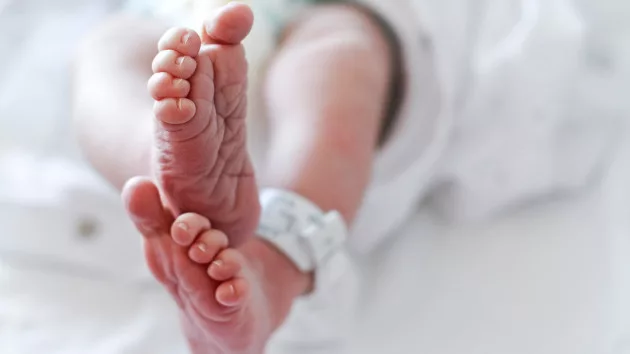(NEW YORK) — More than two dozen premature, low-birthweight babies have been evacuated from Gaza to Egypt to receive specialized care amid the ongoing Israel-Hamas war.
But that is only the beginning of their precarious journey back to health as they escape the conflict zone.
A joint mission between the United Nations and the Palestine Red Crescent Society, led by the World Health Organization, evacuated 31 babies from the embattled Al-Shifa Hospital in northern Gaza to Al-Helal Al-Emarati Maternity Hospital in southern Gaza over the weekend. On Monday morning, 28 arrived in Egypt, while three others who were in stable condition continued to receive care in Gaza, WHO officials said.
In total, 39 babies were removed from incubators when Al-Shifa ran out of fuel on Nov. 11. Gaza has been under siege since the Oct. 7 terror attack by Hamas in Israel, and hospitals in Gaza have run out of fuel and been bombed.
As of Monday, at least five of the 39 babies have died, including three when the power to the incubators was cut off and two prior to evacuation, according to hospital staff and the WHO. The condition of three of the premature babies who remained at Al-Shifa because they didn’t need emergency care remains unclear.
Many of the surviving babies were suffering from life-threatening health conditions including dehydration, vomiting, hypothermia and sepsis because they didn’t receive any medication, and had not been in “suitable conditions for them to stay alive,” Mohamed Zaqout, director of Gaza hospitals, said in a statement Sunday. Hypothermia can be a problem for premature babies who cannot regulate their own body temperature and can be a sign of several types of infections. The risk of hypothermia and sepsis can increase when premature babies are removed too soon from incubators and don’t have adequate access to treatment.
This is the care doctors say they will need in order to survive.
Dr. Erin Schofield, a neonatologist at the University of Maryland Children’s Hospital and an assistant professor at the University of Maryland School of Medicine, told ABC News that premature infants are the most vulnerable group of people in any hospital.
“They’re the most technology-dependent, they are the most resource-dependent, and even in the United States, where we have every means to take care of them, they’re still the biggest utilizers of medical technology,” she said. “Premature babies are a lot more fragile than people think, and keeping them warm is not just an issue of holding them or bundling them in blankets.”
Premature infants need the final months and weeks in the womb to adequately develop their organs including the brain, lungs and liver, according to the Centers for Disease Control and Prevention. Doctors said premature infants have unique health needs and their lives can be at risk without the right specialized care.
When babies are born several weeks early, they often need medical equipment to “support really every organ system, and that at its basis, at its core requires electricity. It requires heat, and if they don’t have those, they [can] very quickly die,” Schofield said.
This care requires more than wrapping them up in a warm blanket.
“Premature babies often rely on intensive monitoring and interventions performed under constant clinical supervision given how fragile they are, particularly those born at earlier gestational ages,” Dr. Nicholas Cuneo, a hospitalist in the department of pediatrics at Johns Hopkins School of Medicine, told ABC News. “Without this type of intensive care, coupled with the appropriate resources, they can be at risk of serious and disabling complications or in some cases death.”
All suffering ‘serious infections’
Eleven or 12 of the evacuated babies are critically ill while the others are seriously ill, according to Dr. Rick Brennan, regional emergency director of the WHO Mediterranean region. Babies who are seriously ill typically require medical treatment and hospitalization but are not yet suffering life-threatening conditions, while those with critical illness are suffering from life-threatening conditions.
“Each of them has serious infections and quite a few of them have low body temperature, so they really do need detailed specialist care,” Brennan said Monday. “Overnight, they received antibiotics, supportive therapy, oxygen. We are hoping that this will help stabilize all of them.” Premature babies are at increased risk of getting infections, even in ideal conditions. Incubators that provide temperature regulation help stabilize babies in a number of ways, helping reduce the risk of infections among premature babies, while early removal can have cascading effects that increase the risk of infections, including sepsis, experts said.
“These tiny, delicate humans are sensitive and any lack of medications, consistent nutrition, temperature control, or even the slightest uncontrolled infection [could] be the difference between life or death,” Dr. Alok Patel, a pediatrician at Stanford Children’s Health and an ABC News medical contributor, said.
“Adequate care for these patients involves a multidisciplinary health care team including neonatologists, nurses, technicians, respiratory therapists, pharmacists, social workers and more,” Patel added.
A team of 10 neonatal specialists took custody of the 28 premature babies at the Rafah border crossing on Monday and moved them to hospitals in Al-Arish, the largest city on the Sinai Peninsula in Egypt, according to Brennan. One group of babies is being taken to hospitals in Cairo.
“They are all, again, seriously ill. They have a long road to go,” Brennan said. “It will take a long time for many of them to recover given their current condition, but we do understand that they are getting very good care at this time.”
WHO officials said the remaining three babies were in stable condition and didn’t need to be transferred from Gaza for further treatment in Egypt. It’s unclear if they were suffering from serious infections, as well.
‘They didn’t ask for this’
Even transporting the premature babies to a safer area can exacerbate some of the health conditions they are facing, Schofield said.
“Transport is not a benign event, and we don’t want to have to transfer a fragile premature baby unless we absolutely have to, unless the benefit outweighs the risk,” she said. “In this case, getting fragile premature babies out of the conflict zone, it certainly outweighs the risks.”
Schofield said once the babies are in a stable environment, staff will need to check for electrolyte imbalances from dehydration, signs of continued infection and internal bleeding.
They should be placed in incubators with temperature probes to control their body temperature, Schofield said. Additionally, they may require feeding tubes if they can’t eat by mouth yet, as well as regular feedings of breast milk or specifically made infant formula they may not have had access to for days.
“Premature babies … they didn’t ask for this,” Schofield said. “They didn’t ask to be born in a conflict zone, and I think we really owe it to them to do our best to give them the best chance at survival.
She added, “It’s heartbreaking to see these babies who, if they had not been born into conflict zones, really wouldn’t face many challenges, and now being born in a conflict zone adds just heaps and heaps upon them, all of these challenges that really no child should have to face, so as much as we can, limit that in their exposure to this.”
Dr. Jade A Cobern, M.D., M.P.H., is a pediatrician in a neonatal intensive care unit and a member of the ABC News Medical Unit.
ABC News’ Will Gretsky contributed to this report.
Copyright © 2023, ABC Audio. All rights reserved.

